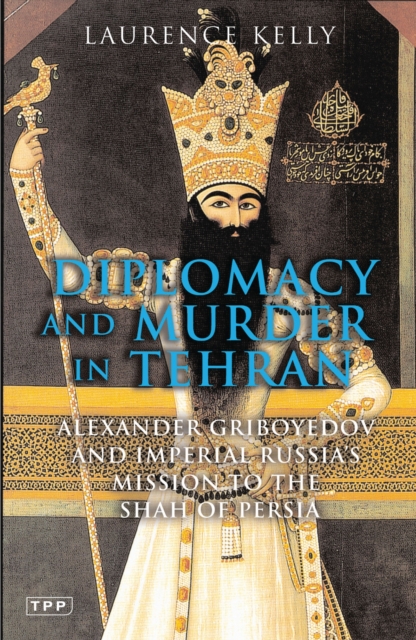
Diplomacy and Murder in Tehran : Alexander Griboyedov and Imperial Russia's Mission to the Shah of Persia PDF
by Kelly Laurence Kelly
Description
In this first biography of Griboyedov in English, Laurence Kelly paints a vivid picture of his remarkable literary and diplomatic gifts which were nevertheless overshadowed by ill-fortune and tragedy.
When the Tehran mob broke into the Russian embassy and murdered all the diplomats there, the death toll included one of the most brilliant and promising stars in the early 19th century Russian literary firmament.
Alexander Griboyedov's masterpiece Woe from Wit had been praised by Pushkin as making 'an indelible impression'. It also had the distinction of being immediately banned by the Russian censors. The play's alternative title was The Misfortune of Being Clever and perhaps Griboyedov's tragedy was that he was not clever enough to withstand the malign forces which shadowed and dogged his career.
As a writer he narrowly escaped the ferocity of the Tsar's government on suspicion of complicity in the 1825 Decembrist plot by liberal aristocrats to overthrow the Tsarist state. After his brush with the wrath of the Tsar, Griboyedov was dispatched to Georgia and Iran, charged with furthering Russia's expansionist agenda in the Caucasus and beyond. As one of the earliest Russian players in the Great Game, he was a leading actor in defining the Tsar's relations with the Persians and the British in the region.
But Griboyedov viewed his mission to Tehran as Russian Minister Plenipotentiary with the greatest foreboding. In the end his diplomatic skills were no match for the zealous mobs unleashed by the mullahs incensed by trivial incidents which they portrayed as a slur on Iran's self-esteem and the honour of Islam.
This book makes an invaluable contribution to the diplomatic history of Russia, the Caucasus and Iran, while at the same time shedding much new light on the life and works of a writer who was among 19th century Russia's most respected and prominent literary figures.
Information
-
Download - Immediately Available
- Format:PDF
- Pages:368 pages
- Publisher:Bloomsbury Publishing
- Publication Date:25/08/2006
- Category:
- ISBN:9780857712103
Information
-
Download - Immediately Available
- Format:PDF
- Pages:368 pages
- Publisher:Bloomsbury Publishing
- Publication Date:25/08/2006
- Category:
- ISBN:9780857712103






